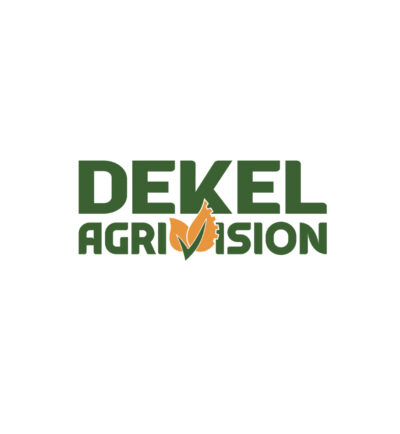Dekel Agri-Vision plc (LON:DKL) Executive Director Lincoln Moore caught up with DirectorsTalk for an exclusive interview to discuss their cashew operation, production scale-up, cash flow positive, palm oil operation, crude oil prices, and main priorities for 2025.
Q1: Lincoln, Dekel Agri-Vision provided quite a positive update on the cashew operation this week. Could you just outline the impact of the new shelling and peeling equipment on production qualities and quantities?
A1: Certainly welcomed, I’m sure, by existing shareholders and shareholders watching us as well as the Board.
This successful commissioning of the shelling and peeling equipment which, as those have followed us for some time, has been the real issue in terms of the cashew operation. So, pleasing that over the last six weeks we’ve installed that equipment, it’s operating well and we’re in the process of increasing production and throughput from it.
It has a significant point of improvement on both the quantity and quality of products so it shouldn’t be forgotten that out of the 10 working stations, 8 have been working quite well so these two were the bottleneck. So, with both bits of equipment working well, we’re seeing an increase in the quantity through the cashews through and, of course, also the increasing quality from the much improved shelling and peeling systems.
Q2: What KPIs are you most focused on for the cashew operation as you scale up production?
A2: As I said, bearing in mind that the KPIs outside of these areas have been well and truly within our expectations. These two pieces of equipment basically improve two functions:
- The whole versus broken aspect of the cashews, which was performing OK, but it’s now at a very, very high level, i.e. when we process raw cashews through, we end up with a lot more whole cashews, which sell for more money. So, that’s up to 90% level, which is fantastic and above typical commercial operations.
- The peeling, which was performing quite poorly, it’s all kind of interlinked, shelling and peeling has improved dramatically so we’re seeing peeling rates now up around 80% versus 56 percent previously.
So, those are the two input type KPIs.
The output of that, of course, is the amount that we can process per day, the quantities, so we’re seeing the ability and capabilities now to produce or process a lot more cashews per day. We’re hoping to continue to improve on that.
So ,those are the three that we will look for and certainly, I think, in our next quarterly update, the amount that we process will be a key KPI for existing and new shareholders to look at.
Q3: Now, with the cashew operation close to cash flow positive, how significant will its contribution be to the group in 2025?
A3: As we pointed out, on the track that we’re going on at the moment, it’s a very realistic probability that we can move to cash flow positive in the month of December, that’s operating cash flow positive.
In terms of how significant that is for our financial results next year, it’s significantly material. The cashew operation has performed with a negative EBITDA the last two years, I think it was for the end of 2023 about £2 million EBITDA loss so moving into positive territory is a straight up £2 million plus gain.
We’re obviously expecting it’ll be EBITDA positive so it’ll have a dramatic input. I think our forecasting at the moment for next year is showing it’ll double the EBITDA of the operation so incredibly significant.
Q4: In terms of the palm oil operation, you mentioned the low season had been longer than usual this year. How might that impact the high season?
A4: I think 2024 has been a pretty solid year, actually, it’s been quite stable, the palm operation, for a few years, it’ll be a good, solid contributor. But you’re correct, probably would have expected a little bit of an uptick in October, November, but it’s been slightly lower, not huge amounts lower than in previous years.
In terms of predicting the future, it’s always difficult. There’s just so many factors affecting yields but what we tend to see is following periods of sustained relatively low EBITDA, we do tend to see a pickup and a peak.
We are moving back into the high season in mid-January, there’s no reason to believe that it won’t be a good one, hopefully a great one, again. That business has been a solid performer now for a number of years and we’re all set for the high season once again and look forward to that business being quite profitable, particularly the really nice prices at the moment as well.
Q5: I was just going to say crude oil prices, they’ve increased considerably over the last couple of months. Is the company benefiting from the increase in prices then?
A5: We’re certainly starting to, just first of all, the international price has picked up a lot in the last six to eight weeks. Without going into huge details, it’s mainly out of supply demand factors out of Indonesia, which is now becoming the largest producer of palm oil, i.e. they’re utilising more and more of it in their B40 plans for biodiesel. Internationally, the demand is still strong, so supplies remain flat and potentially even lower out of Indonesia and demand overall internationally is still growing so that’s driving prices higher.
In terms of locally in Cote d’Ivoire, over historically the 12 years we’ve been processing, we’ve tended to trade at the international price but there has been since COVID and then since the post-COVID inflation period, efforts in Cote d’Ivoire to manage prices of raw materials, palm oil being such an important one.
So, we’ve seen our prices below the international price, but what we can see is I think as the world comes out of inflation, those efforts to manage will probably reside and we’re already seeing in November quite a material increase in our prices.
So, that is pleasing. I think you’ll see a reasonable jump in the November results which we’ll report in December and with prices staying at this level we expect that gap to decrease and our prices to, at this stage looking like they’re going to be stronger early next year than they were this year.
Q6: What are the main priorities for Dekel Agri-Vision in 2025?
A6: The main priorities are to keep it really quite simple. The palm operation is performing solidly, so maintain that operation, obviously high prices should be very supportive and then clearly the level of the area of growth is from the cashews.
So, in the next coming weeks we’re going to be testing out the equipment at 20 tonnes per day, that’s the amount of raw cashew nuts through the cashew equipment. Now, just to put that in context in our forecast, that’s the amount that we need to produce per day next year to meet our forecast, and obviously our plan is actually to be able to go considerably higher than 20 tonnes a day. So, if the cashew performs at that level and potentially higher, it’s going to be a profit contributor to the group.
So, that’s the key thing, the group profitability should rise. Clearly the main corporate activity, aside from that, is using that profitability to improve our balance sheets so that’s a very straightforward three-point plan, which if executed well should be really supportive for the DKL share price.



